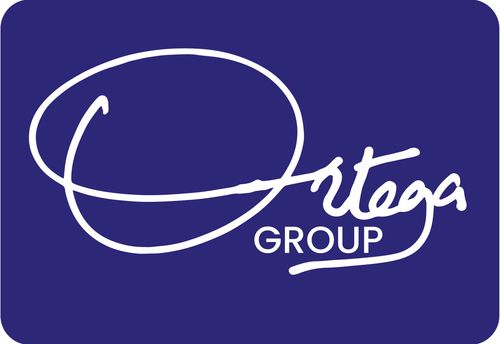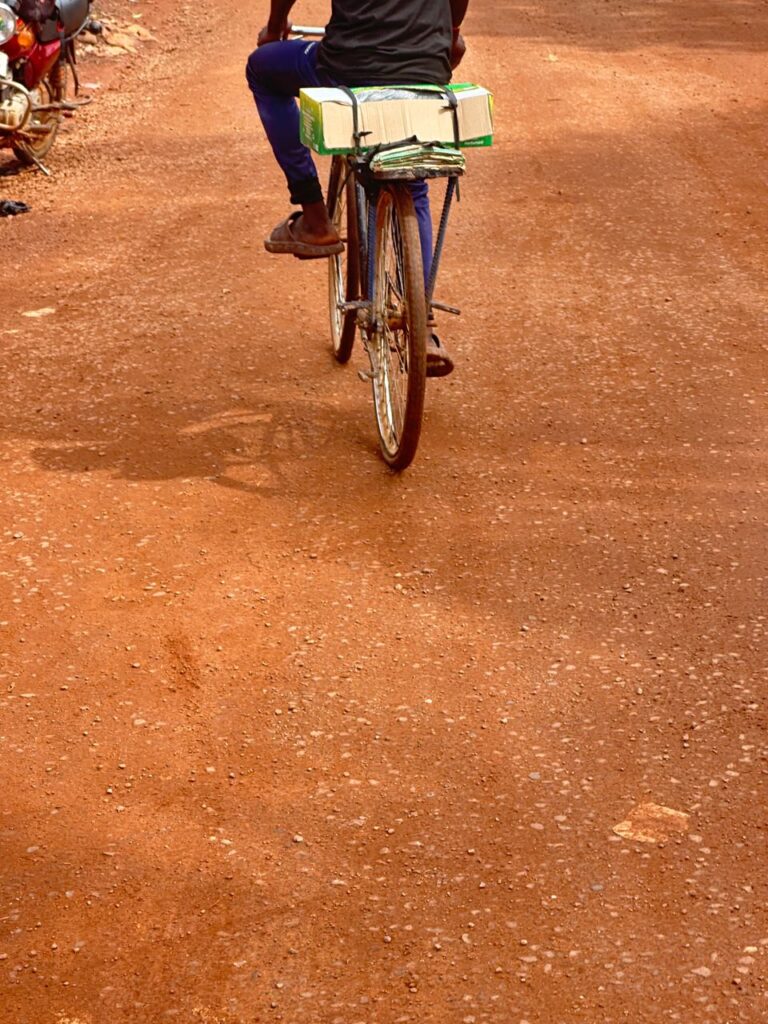By Ian Ortega
I have been pondering about the base of the pyramid aka the market of omuntu wa wansi.
Today, as I did my routine walk, a guy on the bicycle passed me. “Sabuuni omutti gwa nkuumi nya, haafu ya bbiri…” I realized it was time to write the piece.
You see, rather than keep the stock of soap idle in one’s retail shop, someone has decided to deploy chaps on bicycles to pass through the residential areas distributing the soap in accessible formats.
I may not afford the bar of soap, but I could afford the half bar. Recently, DSTV decided not to leave money on the table. Instead of forcing people to subscribe for a whole month, it decided to introduce weekly options. But they ought to have done this much earlier. Why did they wait for competition to move them to this direction?
Over time, I have noticed that if you ignore the base of the pyramid in our country, you have dug your own grave. The base of the pyramid has the volumes, but it is also stable.
Our middle class is as thin as the waist of the hour glass or the wasp. It is fluid. That means, people keep moving in and out of the middle class. And quite often they move down to the base of the pyramid. Why? Because in Uganda, someone can be middle class in January and then base of pyramid in February. Ours is a deals economy. In one week, someone could attend a conference or field trip and get facilitation, then it will dry up in another week. Or someone could become so sweet for their partner and they bless them with a ka-800K but then go on a dry spell in the next month. So we are such a fluid middle class.
Some of the best cars on our roads are organization cars aka Motooka zza Kitongole. And even the few that afford good cars, they can’t equally afford good houses. Our middle class is quasi, balancing on the line between base of pyramid and middle class. That’s why our middle class will still buy a sack of charcoal, it will still have a maid without a formal contract on a 100 or 150K salary.
I am stressing the point that we cannot ignore the base of the pyramid aka omuntu wa wansi. Why did Bukedde TV outsell most stations? Why did the newspaper outsell most newspapers? It went for the segment that was underserved.
That was the same story of Equity and Centenary Bank. The common business joke is that before this, the person that was serving muntu wa wansi was the mattress. Then Equity came around and said, come in as you are. Their banking halls were not intimidating. So a farmer or a vendor from Owino found it comfortable to enter Equity. And they captured that market.
This also explains the Sachet trend. Someone couldn’t afford a kilogram or a litre. But they could afford a sachet. So companies soon realized, that give people the 250g, the 250ml. You saw this with curry powder, with cooking oil.
It is also why that ka-small retail shop couldn’t and will never be disrupted in the foreseable future. Because it breaks the bulk. And then it also gives credit. Imagine credit at zero interest. You go to a small hardware and find that you can also get two kilograms of cement. You don’t have to buy the whole bag of cement. When Goodwill Tiles came around, it went for the base of the pyramid. And for the first time, majority were able to move from cement floors to tiled floors.
The Base of the Pyramid (B.O.P) is about 3As – Affordability, Accessibility and Availability. And for you to be able to achieve this implies efficiency in your business. You must really find a way to produce at a low cost, supply at low cost. This means instead of a delivery using a motorcycle, you will probably use a bicycle or foot soldiers. You have seen those vans that park in an area and the foot soldiers jump out with beauty products.
Give B.O.P the right price in the right format in the right place. And push with volume. It is small margins but big volumes.
Why does Pastor Bugingo or Prophet Kakande continue to win? Because they went for B.O.P. They understood this audience. They packaged the message for the audience. Again, come as you are. Even in the bisooto, their Pastor is there with them. And he will collect that UGX 500, that 1K.
The B.O.P requires innovation. Whatever you are selling, you must ask yourself, is there a way to break it up, to remove the unnecessary so that I can sweep all the money off the floor?
Take the example of local food on Glovo. Does it really matter that I should take that extra cost of branding my package? I believe it is unnecessary. Instead, remove that, just give people good food at a good price. I never even looked a second at the logo of the restaurants and used that to make a decision on a repeat purchase.
For example, right now one of the businesses in town is that of selling wifi. Basically Ortega buys the package from Zuku then he redistributes to his neighbours at a daily or hourly access fee. The point is, find a way to collect that 1K, 2K. Do not leave money either on the table or on the floor. The economy at the moment requires that you sweep everything.
The hotels in Kampala realized this. Instead of keeping a room empty. Informally charge for the short hours. Those who know, know. Again, you are Mutyaba, you have your workplace baddie, take a lunch break. Sort yourselves and everyone is happy. The economy moves.
When you start to see the pragmatism and innovation in the B.O.P, you can’t unsee it. A friend recently shared his business model for real estate. For him, he doesn’t target the middle class. He goes in high volume areas, let’s say Nansana or Kireka. He will buy those strips of land. Then he will fit in a ka-flat. But the flat will have like 12 units. He calls this the Densification model. At most, a unit goes for 300K. But his houses will never be empty. In 5 years, he has always recouped his investment. Again, the core 3As.
Of course sometimes it is challenging to break bulk. UBL once tried to do it. Instead of a crate of beer with everything Guinness. They tried to do like a section of Bell, then of Tusker. But this produced complexities and potentially opened up doors for fraud. Because how do you track these nuances in SAP? You end up with many material codes. But the point was to try and replicate the behaviour at retail level.
What did the betting companies do? Again, make it possible for you to participate with your 1K. I recently saw my Askari with his bu-sures. See, even from him, they are getting the money. Fear a business model that gets money from everyone.
Basically, don’t force me to buy the whole cow (DSTV), sometimes I just want the liver or the hoof. In Kenya, Uber has the ChapChap. Smaller, fuel efficient cars. But they are cheaper than the usual Uber comfort.
I now even believe that when your app or whatever is adopted by the base, then you have done something right. In Kenya, even the Smokie guy or the Mama Mboga will have the Mpesa paybill. Digital money is so well adopted, no one tells you to add withdrawal fee. Because the money is kept in the digital ecosystem. In Uganda, it is cash. So the withdrawal fee is important because people still have to convert to cash.
If you asked me where should businesses innovate? It is at and for the base of the pyramid. Unless you are doing a Business to Business, then you can ignore the base of the pyramid in our economy. Remember the days when Delident gave the Colgates a bloody nose. The colgates had to find smaller formats. Riham Cola forced Coca Cola to go for the Mini.
Give the base a good price. Give them a tried and tested product and they will have no problem parting with their money. I mean, even school fees, we still pay Bitundu. Even salaries. So most Ugandans are always in base of pyramid. At least once a year, a Ugandan will find themselves in the base.
I used to think credit was rare in Uganda. But on the contrary, most people have informal credit aka mabanja. The maid who is waiting for this year’s salary. The landlady that is waiting to be cleared so that she also clears her builders. We are actually a credit economy.
Look into your business and start to see how you can reposition it for the base. I mean, Bed space has also now come to Kampala. Instead of paying monthly rent, people are now paying per night.
Why do you think hiring clothes became a big deal? Couples couldn’t afford to buy suits and gowns that they would wear once. But they could afford to hire. Why wait to sell the suit when you could hire it out?
See what happened with the traffic vendors? They introduced new distribution channels. Your product doesn’t have to sit in a shop when it can be sold in the traffic jam. That’s innovation.
Find a way to innovate on what you sell, where you sell it, how you sell it, to whom you sell it.
Just never forget Muntu Wa Wansi. It is even a moral imperative. That businesses that figure out how to serve Muntu wa wansi become more efficient in the longterm. You ignore that market, somebody will capture it. Equity and Centenary captured it.
Go for the underserved, the ignored and capture them.
A case in point: we can now translate this article using AI into the local languages… and increase its distribution. Then we can voice it for TikTok.

